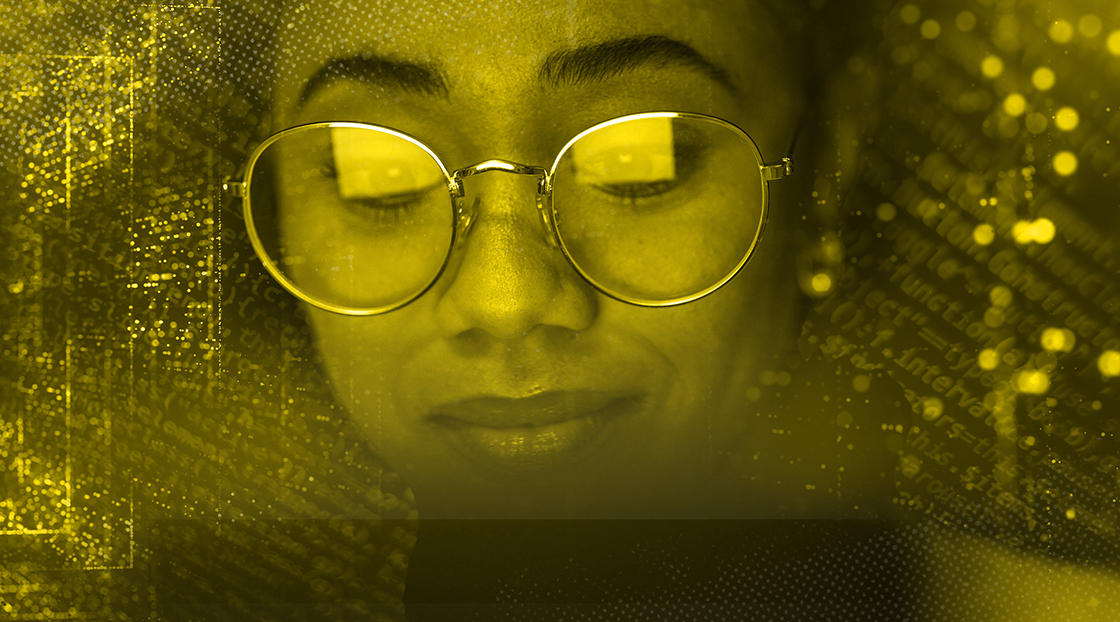Charles Ansell has spent his decades-long career in academia advocating on behalf of students from low-income and underprivileged backgrounds. One of his primary goals as the VP of research and policy at Indianapolis-based Complete College America is to help more students from those demographics finish college and earn their degrees.
Ansell sees AI-driven search as a boon for leveling the academic playing field and not just for “static inquiries” — searching for information on a webpage. Instead, Ansell sees AI’s potential to identify students’ most unique and pressing needs and help them meet those as its ultimate function.
For example, an optimal AI program would help students map their semester-by-semester courses, using data to suggest which classes made the most sense. Then, it’d help the students figure out how to cover their courses financially while also helping to maximize their financial aid.
An optimized AI search would also recognize certain students’ basic needs and detail the available necessary support, Ansell said, such as food pantries, child care and programs that combat housing insecurity. He named the University of New Mexico, Greenville Tech in South Carolina, Metropolitan State in Denver, and Morgan State University in Baltimore as early adopters of such AI programs and leaders in the AI-for-equity field.
“We’re focusing on the equity implications of this; students with the least knowledge of these tools being able to benefit the most from them,” he explained.
On the other side of the coin, AI has the potential to help faculty and advisors generate detailed reports on students, identifying which need the most help and formulating customized programs to assist those students.
Ansell described a future in which AI uses custom student data and results in previous courses to alert professors and advisors when that student would most benefit from an advising appointment or visit during office hours. Another function, he said, includes allowing university staff to query information and rollover data to help schedule classes for students on the back end.
AI could also play a significant role in helping staff and students work together to secure the best possible financial aid packages and to ensure no stone is left unturned.
Using AI to Build Learning Materials
Jevonia Harris was finishing her undergraduate degree at the University of Delaware’s Department of Computer and Information Sciences when the school launched what seemed like revolutionary technology. It was the mid-2000s, and the university for the first time was allowing faculty members to broadcast and record their lectures through a live video system so students could stay up to date with classes from the comfort of home.
The UD Capture system caused a major stir among faculty at the time, even though it was opt-in only and the school didn’t require anyone to use it. Harris recalled that the professors were worried about being replaced by technology and that the video recordings would encourage students not to attend class.
“The school was adamant that human interaction would always be primary and that the video was just a supplement,” she said. “And it really played out that way; the best students here have continued to go to class and interact with their professors.”
Nearly two decades later, Harris oversees the next generation of personalized learning at her alma mater as the head of software engineering for UD’s educational software department. UD Study Aide is one of many new AI-driven programs at schools across the country aiming to make higher ed as accessible as ever. Unsurprisingly, Harris is running into some of the same concerns about tech’s influence on replacing faculty and staff.
UD Study Aide might as well be UD Capture on steroids. Instead of merely taking video, UD Study Aide can comb through the audio transcript and even those from faculty lectures recorded decades ago, to create class-specific flashcards, practice quizzes, outlines and study guides on a given professor’s course material. But Harris, who created UD Study Aide with fellow UD engineer Joe Naccarato, emphasized that school professors still have the ultimate say in approving the content that the program creates before students can see it.
“We’ve been adamant about the ethics of it and the oversight,” she explained. “Once the AI grabs and processes the material, the faculty needs to approve it.
“Consent and transparency is the most important piece of this,” she added, “and that’s why we’re seeing so much enthusiasm and faculty warming up to it.”

Libraries See the Most Potential with AI
Outside of university classrooms and students’ laptops, AI has enormous potential to help school libraries consolidate their vast troves of information into more easily searchable and digestible content, according to a leading higher-ed activist.
Anderson believes the future of university libraries will include AI software capable of providing the “Math 110, Math 120, or Math 430” answers to the same question, thanks to the substantial amounts of university- and course-specific data potentially available on library servers.
Derrick Anderson, the senior VP of education futures at the American Council on Education, believes the future of university libraries will include AI software capable of providing the “Math 110, Math 120, or Math 430” answers to the same question, thanks to the substantial amounts of university- and course-specific data potentially available on library servers.
“I do think that university libraries are going to be reinvented in the near future. If you take AI and you take digital content and you look where universities are and where they could be, I think that’s a domain of innovation that’s potentially transformative.”
At Delaware, Harris and her team are trying. This past semester, associate university librarian Meg Grotti and her colleague Annie Johnson oversaw the launch of UD Stax, a chatbot running ChatGPT 3.5 through subscription-based company Chatbase that developers customized to draw from over 160 pages and 230 frequently asked questions on the library’s website, in hopes of offering students help at any hour of the day. Leaders trained some 20 university library employees on how to update and monitor UD Stax throughout the semester and said the chatbot answered anywhere from a couple dozen to 140 questions per week this spring.
Though not exactly revolutionary at this point, the UD Stax pilot was designed for Grotti and other leaders at Delaware’s Morris Library to get a feel for how much they’d like to invest in AI soon. In addition to gathering feedback from students and faculty, Grotti’s team retroactively reviews each of the bot’s answers to make sure it stays on target.
The biggest issue so far? Fake URLs. Grotti said UD Stax, like some other bots, erroneously gives links to school webpages that don’t yet exist because it’s “anticipating what those resources should look like.”
“This was a huge issue for us,” Grotti said of the fake links. “We know as a library we are a trusted source of information. And we really wanted to minimize the extent that fake URLs were happening. So part of this was trying to spoon-feed the chatbot with easily digestible pages and to create webpages that worked best for it to digest.”
“We understand it’d probably be much better if we were running off GPT 4, but there’s an extra cost to that and we want to make sure we have the funds and want to keep investing.”
Grotti and ACE’s Anderson agree that UD Stax is just scratching the surface of how AI-driven search can transform school libraries.
“I think the relationship between internet search and human learning is not well understood and not even remotely optimized,” Anderson said. “We have generations of technological innovation before we optimize that relationship.”
A ‘Readable and Digestible’ AI-Driven Future for Academics
Asked about how far along the AI timeline most schools find themselves in 2024, Ansell didn’t flinch.
“Most schools aren’t anywhere,” he said. “They’re just getting started.”
But the next 12 to 24 months could offer some incredible developments. In addition to Anderson’s prediction for university libraries, AI and AI-driven search could soon encompass every aspect of a university student’s daily life. University of Delaware’s Harris is in the early funding rounds for an AI project that uses student data, study habits, meal schedule and activities to suggest improvements that optimize their college experience.
Through “knowledge graphs,” Harris and her team have curated an AI network of data that connects disciplines such as course schedules and material with other non-academic university offerings such as dining hall and gym hours. The goal is to put everything together in an AI ecosystem that lays information out in a way that’s most “readable and digestible,” she explained.
“If students give the AI access when they’re in the library or to course data, they should be able to then say ‘Hey AI, if I start getting a C in this class, I want you to let me know, and look through my data to tell me what trends are happening that maybe I didn’t realize. And the AI can say ‘Well, you used to go to the library three times a week, but now you’ve only been going once.’”
“If students are allowing their data to be used; they should be able to have access to that data and to see what those metrics mean.”









